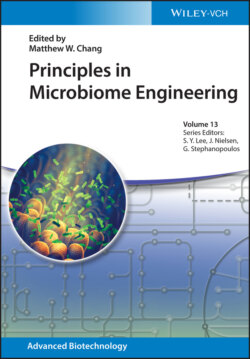Читать книгу Principles in Microbiome Engineering - Группа авторов - Страница 55
1.5 Concluding Remarks
ОглавлениеThere is an undeniable link between the microbes that live in the human body with the human host. The microbes and the human host forming the microbiome, establish the individual's health where the microbial composition changes over the age of the host and the biochemical conditions of the host. One of the main determining factors of the host biochemistry is the host diet, where foods can affect how the host cells and the microbiota reacts.
In this chapter, we compare different impacts of diet primarily based on wealth, age, and locality. From a socio‐economic standpoint, wealth influences the eating and lifestyle habits of individuals and in doing so impacts the microbiome. The age influence is mainly due to the differences in consumed nutrients composition affecting the microbiota of infants, children, teenagers, adults, and elderlies. In contrast, the locality provides different types of food, affected by geography, climate, and customs. Thus, we can observe differences in health levels in different countries. It is considered that wealth also influences diet choice and risk of some diseases, mainly because people with different levels of wealth may have different views on the consumption of foods (such as probiotics) and living habits.
Designed diets are currently used to treat or prevent diseases, by controlling the amount of specific dietary components, probiotics, and prebiotics. These treating strategies have been explored in infection, inflammatory diseases, psychological diseases, cancers, metabolic disorders, and other diseases. The changes in the diet affect intestinal epithelial cells and intestinal barrier function as a direct means of interaction with the host. Dietary changes can also influence the microbiota composition, mainly by repressing pathogenic bacterium and promoting the growth of beneficial bacteria. The change in microbiota composition can also influence host immunity. Thus, the diet components that encourage specific species of microbes as means to control disease pathogenesis are currently investigated.
These researches are being supported by various governmental, Non‐Governmental Organizations, and private institutions, indicating the importance of the field. It is clear that the role of diet indeed is an important aspect of host health and would merit further investigation.
